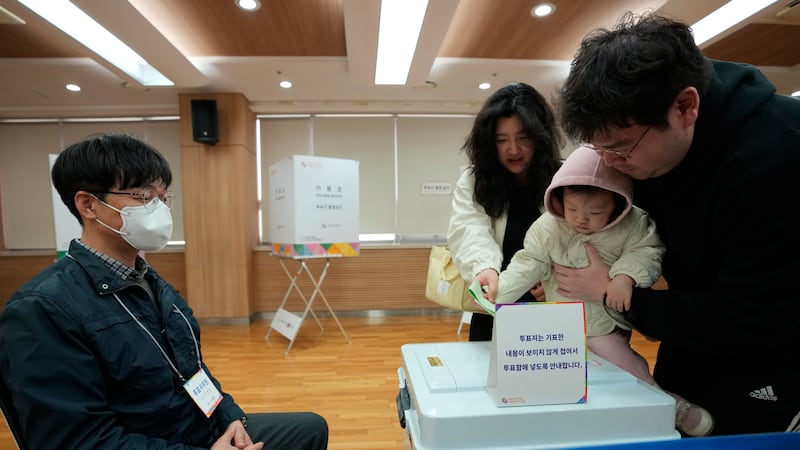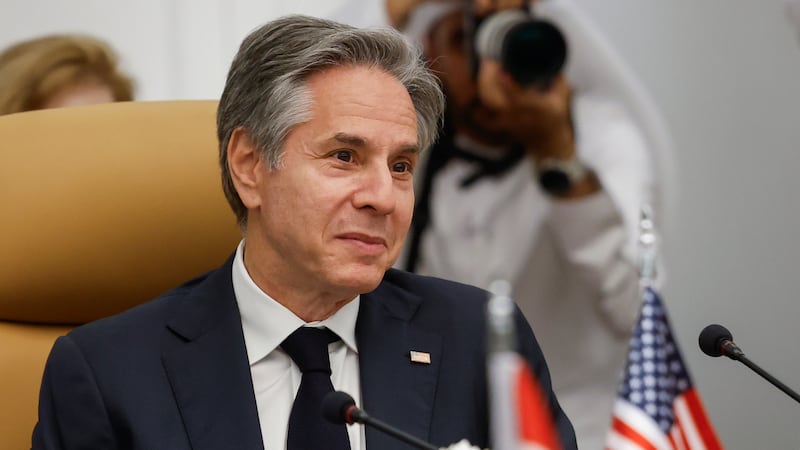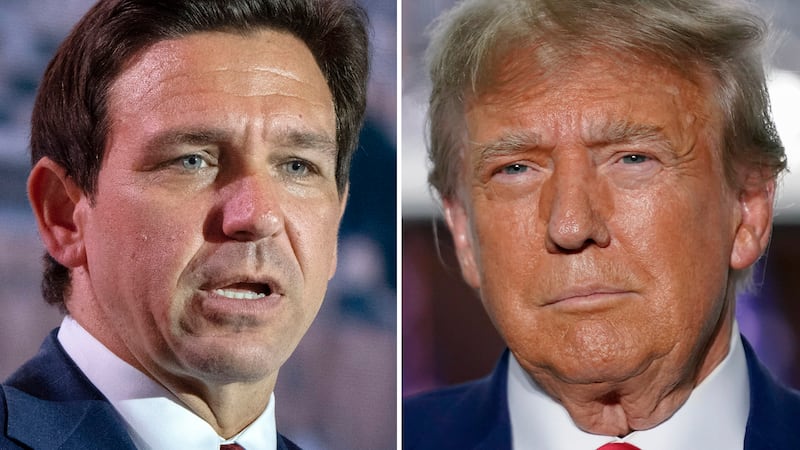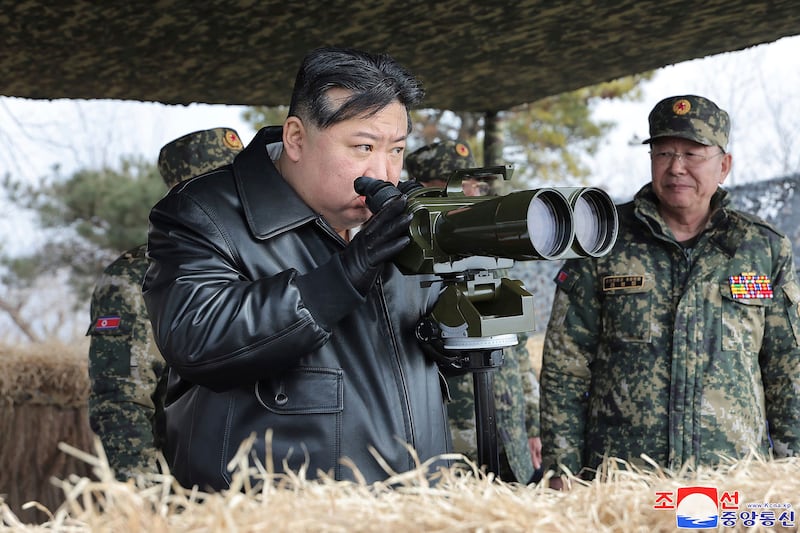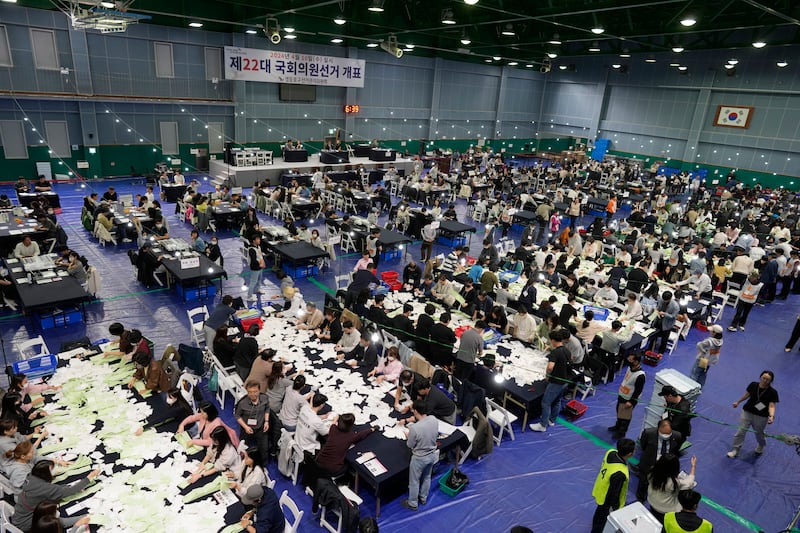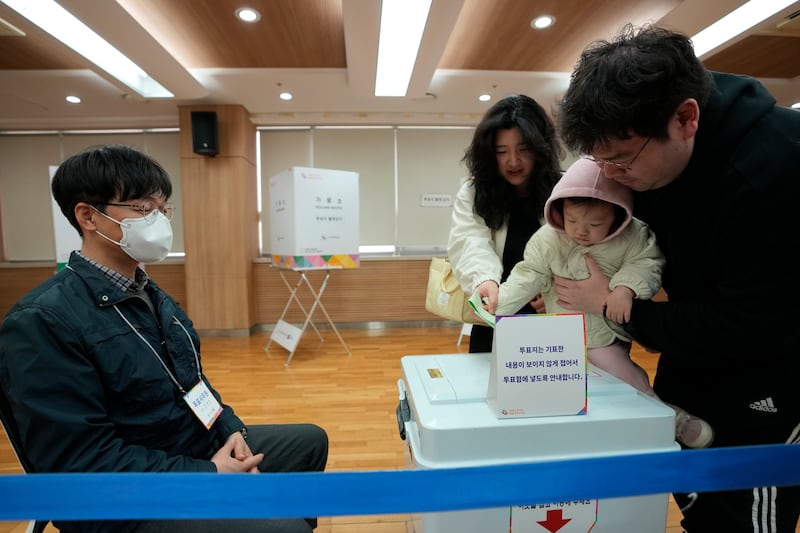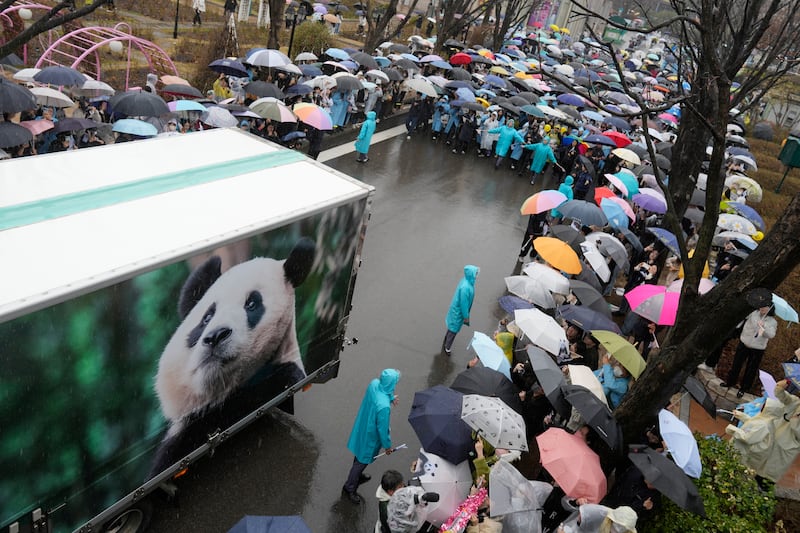South Korea’s liberal opposition parties are expected to win a landslide victory in the parliamentary election, initial exit polls suggest.
The result, if confirmed, would make conservative President Yoon Suk Yeol a lame duck for his remaining three years in office.
The joint exit polls by South Korea’s three major TV stations – KBS, MBC and SBS – showed the main opposition Democratic Party and its satellite party were forecast to win combined 178-197 seats in the 300-member National Assembly.
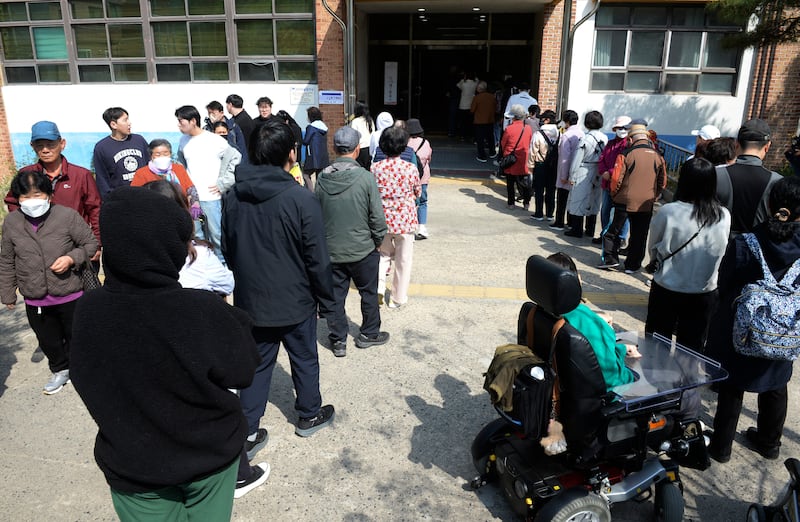
They expected another new liberal opposition party to win 12-14 seats.
The polls suggested the ruling People Power Party and its satellite party were projected to win 85-105 seats.
Wednesday’s election was widely seen as a mid-term confidence vote on President Yoon, a former top prosecutor who took office in 2022 for a single five-year term.
He has been grappling with low approval ratings and a liberal opposition-controlled parliament that has limited his major policy platforms.
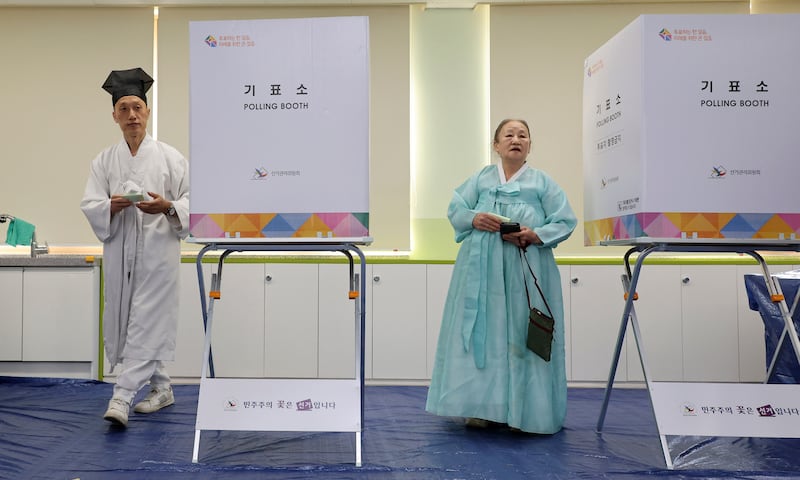
Regardless of the results, Mr Yoon will stay in power, but if his party fails to regain a parliamentary majority it could set back his agenda and further intensify conservative-liberal fighting.
“What would matter to the People Power Party is whether it can become the biggest party or the second biggest party,” said Choi Jin, director of the Seoul-based Institute of Presidential Leadership. “If his party loses the election, Yoon will find it difficult to move forward even a single step on state affairs.”
Of the 300 seats, 254 will be elected through direct votes in local districts, and the other 46 to the parties according to their proportion of the vote.
Election observers say candidates in about 50 to 55 local districts are in neck-and-neck races.
